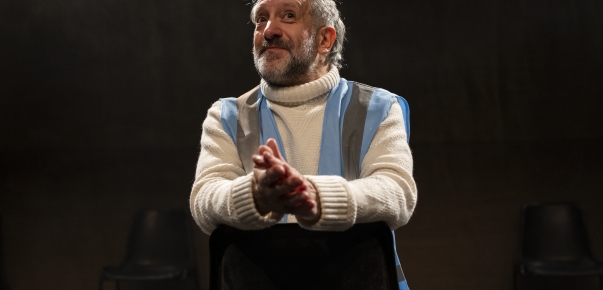Spill: Rehearsal Diary - Week 3
24 Jun 2015I’d never taken on the role of dramaturg before I started this process. But that’s what Made in Bristol is about, giving people the chance to figure out what they want to do creatively, learn from their successes (and mistakes) and become better artists. Having said that, it was a fairly daunting task; the success of Verbatim work lies in its structure. We interviewed over 30 people, and it may sound like an exaggeration, but I can honestly say we could have made a show about any of them. Just them. But we wanted to make a show which would show multiple people’s journeys through transitional states of their sexuality, whilst representing the overriding themes we heard from everyone we spoke to. As well as leaving time for movement, and puppetry, and music. To fit all of that into seventy minutes (no interval) was no mean feat.
[gallery type="rectangular" ids="176471885,176471883,176471887"]
I began by reading all the material, and listening to as much of it as I could. While we had a basic idea of the structure we wanted our show to follow before we began-this influenced the questions we asked our interviewees, tracking their sexual experience from early age to current state- we knew that the heart of it would come from what people actually said. The company read as well, highlighting with vigour and the most useful thing of all- fresh eyes. You can’t replicate the feeling of reading material for the first time, which is the closest you can get to how the audience will experience it. Remember the things that were unclear, or funny, or melancholy before they get deadened by constant repetition in rehearsals. If multiple people read something, and felt attached to it, we knew it was vital.
I made lists of themes that felt urgent from the interviews, and what felt like hundreds of google docs (if you haven’t tried it, I highly recommend it- you’ll never have to experience the panic of your battery dying with an unsaved document again) where we wrote what felt to be the essence of each of the interviews, colour coded with a forensic (well, not really) system devised by the company. This quickly went out of the window- we didn’t have enough colours to categorise what we had been told.
Then the first round of cuts came. While we wanted to be representative, we didn’t have enough time to include everything. So first we cut characters (it still feels odd, and a bit callous to call real people that), and then began to decide not just whose stories would resonate with the audience, but what we as theatre makers were trying to say. At about this time, my role as dramaturg began to merge with one as writer; more than anything else I became the girl glued to her laptop. Luckily I wasn’t alone; at this stage, Jess Clough-MacRae, director and general wonderwoman became my right hand man. We began to spend our evenings with laptops facing each other, squabbling over structure, editing documents, drinking red wine and eating macaroons (which makes us sound a lot more decadent than we actually are, and like we’re in with a fair chance of getting gout). We began to bring in material for the company to try. More cuts came, the structure changed (after some illuminating advice from Sharon Clark, Bristol Old Vic Literary Producer), the company gave us suggestions, we saw what worked and what didn’t. We began to write on our feet, as a group, only really understanding how things flowed when we tried them as a company. The Musical Directors approached us with ideas for music, and vice versa- sometimes all you need to figure out a structural shift is a song, it turns out.
And now we have a final script. Well, I say final. Jess and I are no longer sitting behind our laptops, but it is ever changing. Things are cut and re-added with pencils in the rehearsal room, we figure out what still needs to be written, or edited to make a piece of material really shine. Because what we want to do is get the audience to understand how we felt when we took those interviews. It was a joy, and in some (most) cases, incredibly moving. A lot of the time it was a relief- the person in front of me was articulating something I had thought many times and had never said. It was a privilege.
[youtube https://www.youtube.com/watch?v=ujP2r4pr-24]
Spill plays in Bristol Old Vic Studio between 1-4 July. Find out more, and book tickets, here.


